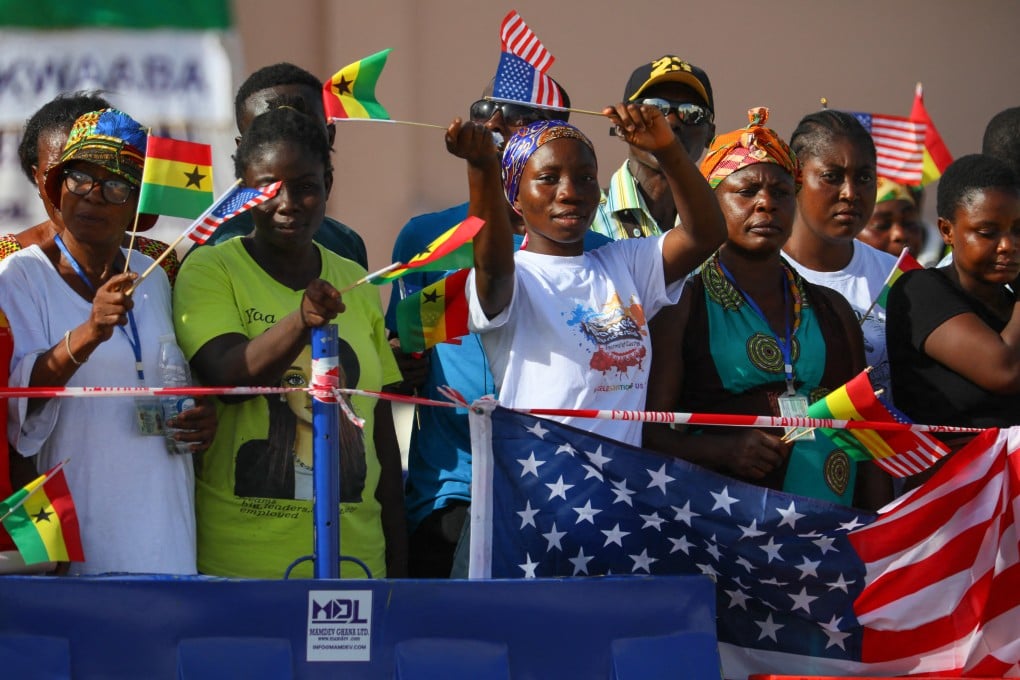In Africa, US poll as entertainment weighed against potential trade, immigration fallout
For Africans, status of aid, duty-free access to the US market, HIV/Aids relief and entry visas depends on who is elected to White House

X.N. Iraki, an economics professor at the University of Nairobi in Kenya, said Africans were excited about the US polls because a candidate of African descent was contesting, something akin to the sentiment that arose when Barack Obama ran.
“They feel their voices might be heard if one of their ‘own’ gets to the White House,” Iraki said.
He said that even without the polls, “we are obsessed with the US because of its soft power espoused by media, aid and movies via … Hollywood”. Iraki said the soft power of other big economies was “mostly muted”.
America as the “Land of Promise” has lured many skilled African graduates, such as doctors, nurses and engineers, to relocate to the US. Around every October, thousands – or even millions – of Africans apply to compete for 50,000 slots in the US Diversity Immigrant Visa Programme.
However, Cameron Hudson, a senior fellow in the Africa Programme at the Centre for Strategic and International Studies in Washington, said there was no US domestic political issue likely to be felt in Africa more than immigration.
“Africans remember clearly the painful language used by president Trump when he enacted his first ‘Muslim ban’ during his first hours in office,” Hudson said in a commentary published by CSIS.
